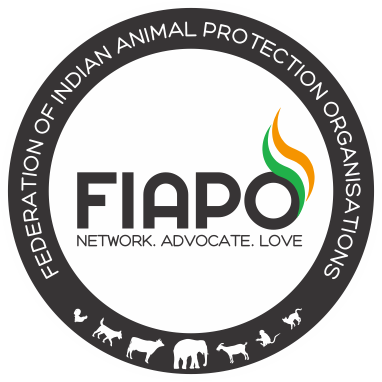Here’s a story to lead by example from the streets of Varanasi, on how the best practices of First-Aid can go a long way, to help animals on the streets effectively and smartly, with minimum resources and maximum outcome!
Less than 2 weeks ago, Matru was bitten by two other dogs in the district of Khojwa, Varanasi.
Priyanka, one of the volunteers in the neighbourhood, immediately notified the area’s first-aid specialist, Anoop. Speedy dressing of the wound, anti-biotics to make sure the infection doesn’t spread and regular follow ups for the next 3-4 days made sure that Matru was fast on his way to recovery! He has been taken care of by Priyanka, who feeds him and regularly applies medicine.
FIAPO has been able to do this and more in Varanasi thanks to the growing first aid community in the city with over 35 volunteers, covering over 60% of the city’s area through first aid. Based on FIAPO’s work in Varanasi and many other cities, below are 5 easy, tried and tested methods that are reliable, effective and quick for an effective First-Aid program:
1. First Aid Rounds
Go for a first aid round at least once a week, along with a basic first aid kit. Look for dogs in gullies and under cars, asking the locals on the way to know if they’ve come across an injured dog. Treat small wounds on the way by cleaning, bandaging, applying medicine etc. If you need help with these, get in touch with the local NGO to provide you training or contact us at mail@www.fiapo.in to help you with the process.
2. Act Locally
Get volunteers to proactively take the responsibility of taking care of dogs in their neighbourhood. The best way to do this is going for the aforementioned first aid rounds and aligning with the community caretakers. You can also use social media to your advantage by posting calls for volunteerism to start your own subgroup ensuring healthy and happy street animals!
3. Foster a Positive Community
While conducting first-aid, try building a rapport with your community helpers like the local chaiwala, panwala, security guard and others. Remember to carry your business card, or your phone number written(in the local language) on small pieces of paper to distribute to the people around you. This way, the community helpers can help you by informing you about the whereabouts of dogs and bringing to your notice if any of them needs your attention.
4. Connect with Fellow First-Aid Community
Having a well informed and interactive first aid community is imperative to quality first aid –You can start by creating a Whatsapp Group to connect with fellow volunteers for emergencies, and to keep up the enthusiasm by sharing inspiring success stories. With this group, you can also arrange for a regular meet-ups(preferably once in 6 weeks) and review the status of the network, add new people and check the health of the animals in the city.
5. Documentation of Treatment for Effective Follow Ups
Effective follow-ups are only possible if there is documentation of the ongoing treatment. It is rare that a dog gets treated in one go, and when you are doing that for 15 odd dogs, it is almost impossible to keep track! To make life simpler for you and the ailing animal, it is of utmost importance to know when the dog’s next dose of medicine is due!
If executed effectively, these 5 tips can make your city into a safe haven for animals and foster a healthy environment for all our street friends! If you’d like to start a First-Aid program in your city-or would like support for an existing one, write to us at mail@www.fiapo.in!






